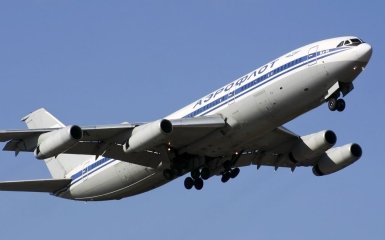With Russia holding elections in three months, the collapse of the state-owned airline could put reputational and electoral pressure on Putin, who is running for president again. That is why the Russian Federation throws huge sums to support aviation.
Russian-sanctioned aviation suffers losses
Russia has provided more than $12 billion in government subsidies and loans to keep its aviation sector afloat. Western sanctions due to the invasion of the Russian Federation in Ukraine closed the supply of critical spare parts and maintenance services.
The publication of Reuters reports this.
In March 2022, Western aircraft manufacturers Airbus and Boeing stopped supplying services and spare parts and stopped regular maintenance of the leading air transporter Aeroflot and other Russian airlines.
The spending is nearly double the 547 billion rubles ($5.95 billion) in payments made in 2020-2021, when the COVID-19 pandemic caused a sharp decline in air travel, and underscores the scale of the Kremlin's efforts to control a vital industry.
Our aircraft fleet is very overloaded... with foreign-made aircraft, President Vladimir Putin said last week. By 2030, we plan to produce more than 1,000 aircraft, our own aircraft.
According to the Swiss aviation data provider ch-aviation, currently, Russian airlines operate 991 aircraft, including 405 of Russian production.
However, only 133 Superjet aircraft were produced by the state-owned United Aircraft Corporation. Other Russian-made aircraft - "Tupolev", "Yakovlev", and "Ilyushin" - are rarely used for commercial flights.
Support for aircraft construction, a key industry, will be maintained for many years, the industry and trade ministry said in response to Reuters findings.
A reliable aviation industry is fundamental to Russia for transporting people and goods across its vast territory and for supporting Moscow's claims that the sanctions have had only a minimal impact.
With voters heading to the polls in three months, the airline's collapse could put reputational and electoral pressure on Putin, who is running for president again.
Western aviation analysts say the investment will at best preserve the fleet, but doubt its planes will return to Western markets anytime soon, even if the war against Ukraine ends. This is due to the costs and bureaucracy associated with the restoration of the fleet, safety indicators and spare parts, the publication writes.
Funds will not help
As data showed, Russia has invested in reserve funds, spending 110 billion rubles in 2022 to compensate airlines for losses from a sharp rise in fuel prices.
This year, the National Welfare Fund (NWF) played a more critical role in financing: in 2023, Moscow attracted almost 400 billion rubles for aviation expenses.
The scale of spending in 2022-2023 is equivalent to just under 1% of projected gross domestic product (GDP) in 2023. Russia spent an additional 2.3 trillion rubles in 2022-2023 on transport development outside the aviation sector.
Domestic air passenger traffic in the country began to recover in late 2022 as airlines found ways to import spare parts under the government's "grey" import scheme.
Russian airlines keep their fleet of Western aircraft in the air, partly by importing spare parts through third countries without the consent of the manufacturers — mainly Airbus and Boeing.
Ridership is recovering but still lags behind pre-Covid levels. Meanwhile, the loss of foreign parts and maintenance expertise raised concerns about the safety of the aircraft.
Some airlines dismantled planes for spare parts, sources in the aviation industry said last year.
Moscow hastily localized the registration of its fleet and bought planes from foreign lessors with the funds of the National Bank of Ukraine in order to avoid the risk of their confiscation when flying abroad, the article says.
Russian Minister of Transport Vitaliy Saveliev said 300 billion rubles ($3.4 billion) could be sent to purchase aircraft from foreign lessors in 2023.
According to data, 190 billion rubles ($2.1 billion) have been spent on aircraft storage for airlines.
A government document setting out strategic plans for aviation spending seen by Reuters last fall said Russia would have to spend at least 711 billion rubles ($7.75 billion) to "achieve technological independence from foreign suppliers."

